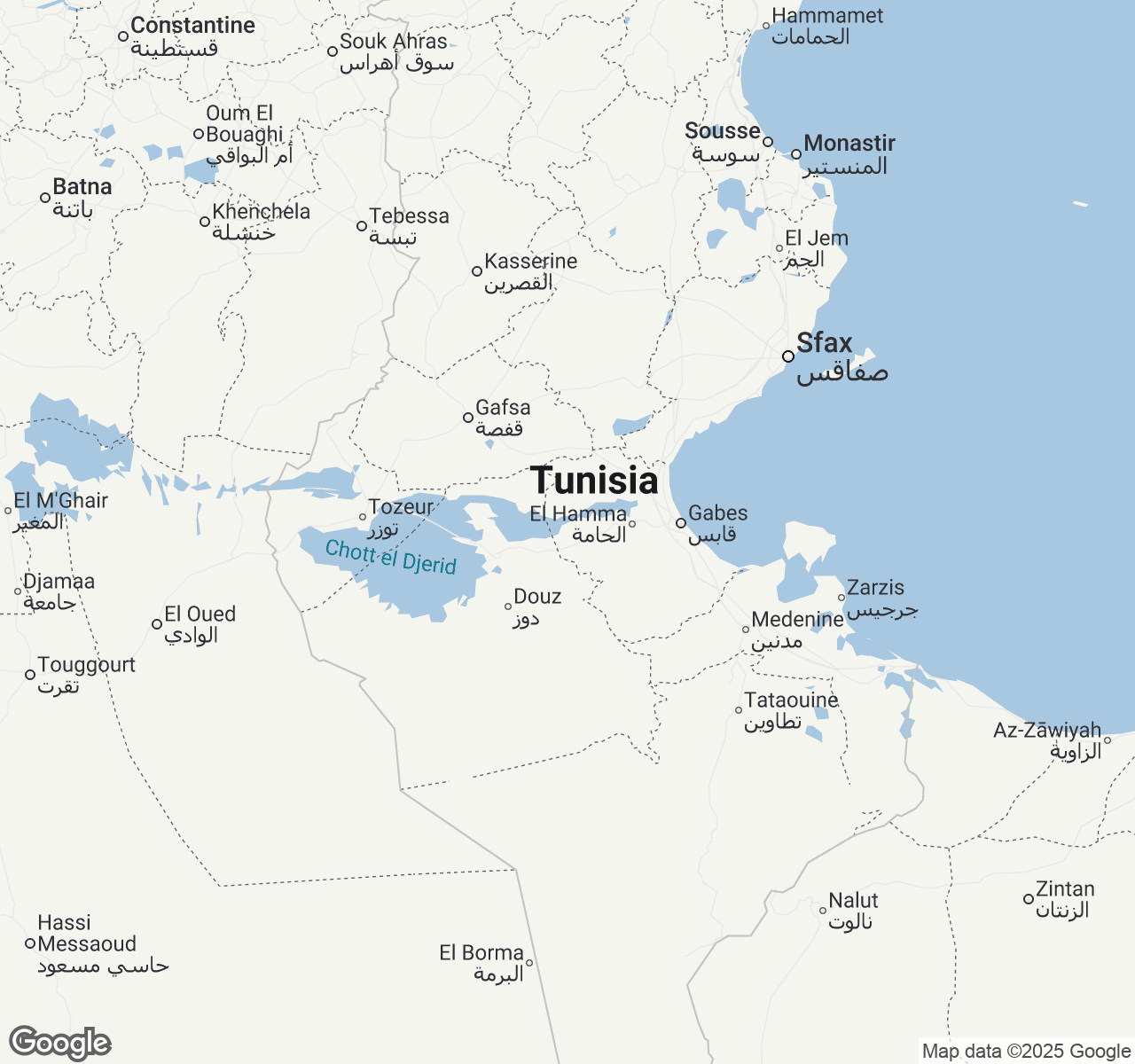
Things to Do in Tunis
Discover the best of Tunis
Plan Your Trip
Essential guides for timing and budgeting
Top Things to Do in Tunis
Discover the best activities and experiences. Book now with our trusted partners and enjoy hassle-free adventures.
Your Guide to Tunis
About Tunis
Tunis whispers stories of three millennia through its labyrinthine medina, where the scent of jasmine mingles with cardamom in narrow cobblestone alleys. This captivating capital stands as North Africa's most accessible gateway, where French colonial elegance meets Islamic architecture in perfect harmony. Ancient Carthage's ruins crown nearby hills, while the city's beating heart pulses in souks alive with artisans crafting leather, silver, and ceramics by hand. Modern Tunis surprises visitors with its progressive spirit—sidewalk cafés buzz with animated conversations over mint tea, while art galleries and cultural centers showcase contemporary creativity. The Mediterranean's azure embrace lies just minutes away, offering respite from urban exploration. Here, time moves differently; whether you're haggling for hand-woven carpets, savoring harissa-spiced tagines, or simply watching life unfold from a rooftop terrace as the call to prayer echoes across white-washed rooftops, Tunis rewards the curious traveler with authentic moments that linger long after departure.
Travel Tips
Transportation: Use the efficient TGM light rail (0.5 TND per ride) connecting downtown to Sidi Bou Said and Carthage. Taxis are plentiful but insist on the meter or negotiate fares beforehand—expect 3-5 TND for short city rides. Download the Bolt app for reliable ride-sharing.
Money: The Tunisian Dinar (TND) cannot be obtained outside Tunisia, so exchange euros or US dollars at banks or official bureaux de change upon arrival. Credit cards work in hotels and upscale restaurants, but carry cash for souks, street food, and local transport.
Cultural Respect: Dress modestly when visiting mosques (shoulders and knees covered). During Ramadan, avoid eating/drinking publicly during daylight hours. Learn basic Arabic greetings—'As-salamu alaykum' opens doors. Friday afternoons see many businesses closed for prayers.
Food Safety: Street food is generally safe at busy stalls with high turnover. Try brik (crispy pastry with egg), but ensure it's served hot. Bottled water is recommended initially. Avoid raw salads at budget restaurants but embrace fresh seafood at coastal establishments.
When to Visit
Spring (March-May) offers Tunis at its finest, with temperatures ranging 18-25°C and minimal rainfall (20-30mm monthly). Wildflowers bloom across archaeological sites, and accommodation prices remain 20-30% below peak season. Summer (June-August) brings intense heat (28-35°C) and crowds, with hotel rates soaring 40-50% higher, though coastal breezes provide relief. The Carthage International Festival (July-August) transforms ancient ruins into concert venues, justifying premium pricing. Autumn (September-November) delivers ideal conditions—warm days (22-28°C), cool evenings, and harvest season bringing fresh dates and olives to markets. Rainfall increases slightly (40-60mm) but rarely disrupts sightseeing. Winter (December-February) sees temperatures drop to 10-16°C with occasional rain (60-80mm monthly), making it perfect for budget travelers seeking 30-40% accommodation discounts and authentic local experiences without tourist crowds. Ramadan dates shift annually but create unique cultural immersion opportunities. Digital nomads favor shoulder seasons for pleasant weather and moderate costs, while culture enthusiasts should time visits around the Tunis International Festival of Carthage or the Festival of Traditional Music (March-April).

Tunis location map